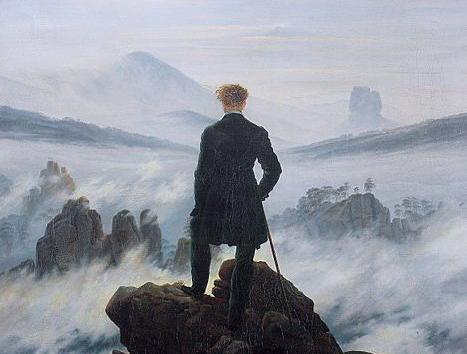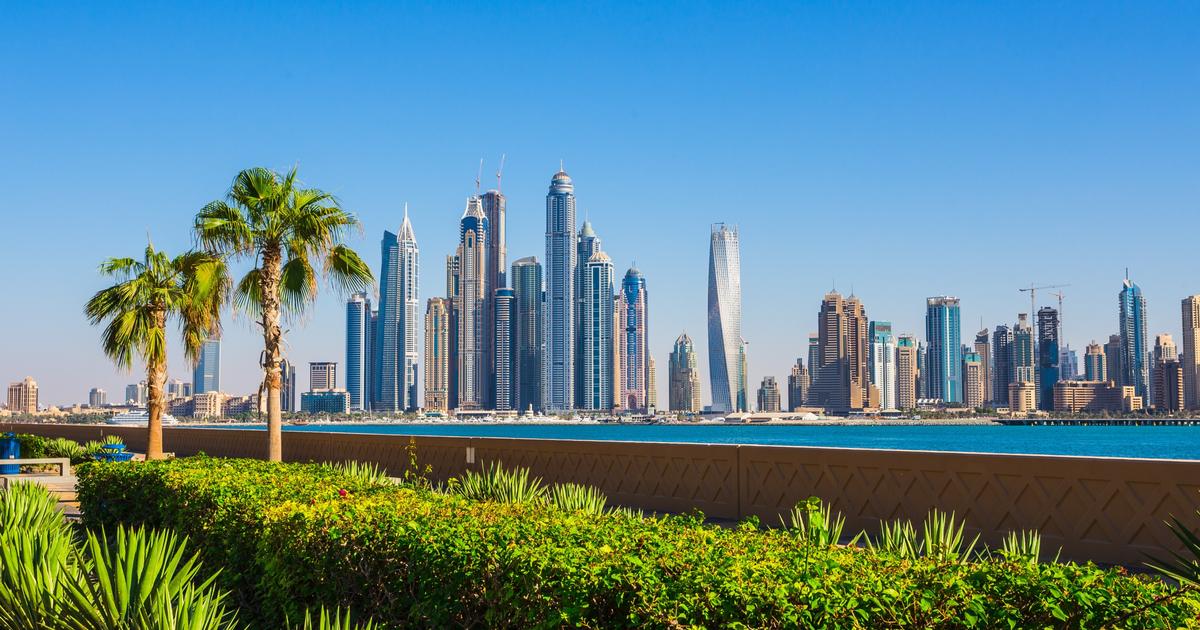Matthieu Giroux is a journalist, founder and director of the humanities and humanities review PHILITT, founded in 2013. He is the author of Péguy, un enfant contre le monde moderne (Première Partie, 2018). He publishes
Résister à la modernité (Editions du Rocher), a collective book bringing together the best contributions to the journal since its foundation.
FIGAROVOX.- In the introduction to your collection “
Résister à la modernité
”, you take up Rimbaud's apostrophe “to
be absolutely modern
” to invert it “to
be absolutely anti-
modern
”.
What do you mean by anti-modern?
Is it possible to reject modernity altogether?
Matthieu GIROUX
.- Antimoderns refer to a precise tradition very well thematized by Antoine Compagnon in a book published in 2005
Antimoderns: From Joseph de Maistre to Roland Barthes
.
It is essential to understand that antimoderns are moderns.
They are, as Companion says, moderns "
denounced from the modern
", modern "
thwarted
".
To read also:
Éric Zemmour: "A praise of the limits which stops halfway"
Because, in reality, there are antimoderns only in the modern world, a period of which the precise dating varies according to the writers.
Some say that the modern world begins with the scientific revolution of Galileo (Michel Henry), others with the Protestant Reformation (Joseph de Maistre), still others with the Industrial Revolution (Günther Anders).
Charles Péguy, he started the “
modern world
” in 1881. The anti-
modern
are those who identify in their time a form of spiritual decline and reduction of man.
The anti-moderns are paradoxical because they often combine a critique of the ideology of progress with a great aesthetic modernity.
Baudelaire, Péguy, Bernanos detest their time but express it through renewed literary forms.
The anti-moderns are, despite themselves, part of modernity
From a political point of view, the anti-modernists are still ambivalent because they are often engaged in the political adventures of their time.
We can also add that they are very individualistic whereas there is in them a permanent criticism of individualism.
In short, the anti-modernists are, despite themselves, part of modernity.
How does the anti-modern differ from the reactionary or the traditionalist?
Joseph de Maistre, who is the father of reaction, is often considered an anti-modern for both aesthetic and philosophical reasons.
His language is brilliant and modern, so much so that Robert Triomphe said of him that he was a "
turned Voltaire
".
Likewise, Maistre, although a counter-revolutionary believes that the "
counter-revolution will not be a contrary revolution but the opposite of the revolution
".
The Revolution is for him a punishment which must purify the French people with blood.
He endorses the course of history and a return to the old order does not make sense to him.
In my opinion, there is almost a misunderstanding about the notion of reactionary if you consider that Maistre initiates it.
Today, the word "
reactionary
" is misguided and does not refer to any reality.
People are confusedly accused of being "
reactionary
" when they are, by and large, conservative liberals nostalgic for a recent past, often that of France under General de Gaulle.
To read also:
Pascal Bruckner: "The only identity still authorized for whites is the identity of contrition"
Traditionalists à la Louis de Bonald or supporters of Tradition à la René Guénon refer to different ways of thinking.
Bonald is a doctrinal, precursor of French sociology, who does not have the aesthetic charm of a Maistre.
From this point of view, it is precisely because it is not modern that it is not anti-modern.
Guénon, for his part, believes that the history of mankind has been a long degradation since an immemorial Golden Age.
Its mental software is independent of modern categories.
He seeks less to formulate an anti-modern criticism than to assert that modernity is anti-Tradition.
You criticize
the homo reactus
, that is to say the reactionary who makes anti-political correctness a reflex.
Why?
Isn't it a bit snobbish to want to sort between the good and the bad antimoderns?
Does not union against progressivism require a front?
Homo reactus
, a neologism invented in reference to
Philippe Muray's
Homo festivus
, is not a reactionary in the strict sense.
If we consider that Joseph de Maistre is a reactionary - and we have seen that it was already problematic - then
Homo reactus
is not a reactionary.
Homo reactus
rather designates a certain fringe of journalists and intellectuals who have made politically incorrect a commercial argument and an end in itself.
Homo reactus
is politically incorrect, not because he defends a deep world view, but on principle, to show that, above all, he is "
not-of-left
".
What makes it possible to bring the anti-moderns together is their ethos, that is to say their temperament.
They are inhabited by a deep conviction: there is something scandalous about the world that is ours
Homo Reactus
, unlike the antimoderns, is not at all scandalized by the world as it is, he adapts to it perfectly and does not try to overturn the table.
As its name suggests,
Homo reactus
reacts, but it does not speak positively.
He is a man of resentment, as he was thematized by Nietzsche.
Nothing to do with the antimoderns whose philosophical and aesthetic radicality upset common sense.
You make us discover a lot of authors… Charles Péguy, Dostoïevski, Georges Bernanos, Léon Bloy, Soljenitsyne, Baudelaire, Guénon, Chesterton: what do all these writers have in common?
What makes it possible to bring the antimoderns together, so much they differ on many points when we take them individually, is their ethos, that is to say their temperament.
They are inhabited by a deep conviction: there is something scandalous about the world that is ours.
The modern world is ugly, stupid and iniquitous at the same time.
The development of technology disfigures the surface of the earth and degrades man, contemporary lifestyles encourage a utilitarian relationship with others and demolish spirituality, the hegemony of capitalism leads to a new form of servitude.
This state of affairs is the reason for the anger of the anti-modernists.
And they have in common that they do not deal with the world as it is, never “
get used to it
”, to use Péguy's terminology.
To read also:
Mathieu Bock-Côté: "Indefinite extension of the field of asylum?"
Their vituperation, if it can be the sign of a certain pessimism, is not for all that an invitation to despair.
On the contrary, the anti-modern is shaped by hope and it is from this mismatch between reality and their ideal that their suffering and their inexhaustible will to fight it arise.
Your review leaves a large part to literature.
How is this an antidote to modernity?
Literature is a unique, non-theoretical way of accounting for reality.
In this, the literature is opposed to the approach of the social sciences.
While the latter reduce reality to objective entities, evaluated according to quantitative methods, literature draws its legitimacy from the subjectivity that produces it.
It would be a mistake, for example, to reduce Balzac's work to a realistic, even naturalistic enterprise, to glorify the Human Comedy only because, as we often hear, it would compete with civil status.
In Balzac there is more than a realistic description of French society in the 19th century: there is also the magic of the skin of sorrows or the Faustian charisma of a Vautrin.
Dostoyevsky, who had read Balzac a lot, understood this.
Literature is inherently anti-modern insofar as it seeks to preserve the existence of inner life
His work, if it has a sociological dimension, is also a disturbing plunge into the depths of the human psyche, an attempt to unveil the deep mystery of existence (God, soul, freedom).
Literature is inherently anti-modern insofar as it seeks to preserve the existence of the inner life.
In a way, we can say that naturalism - which wanted to give literature a scientific status - is a non-literary enterprise.
The sociological reduction of literature brings about its own destruction.
You write that the modern is characterized by hatred of secrecy and prescribe against the cult of transparency and exhibition the nobility of dissimulation.
Why is the modern hostile to secrecy?
How is it precious to civilization?
The modern does not believe that there is a hidden dimension of existence, something that escapes objective description.
Modernity was partly built on the denunciation of certain “
metaphysical illusions
”.
The great scientist movements of the end of the 19th century are the caricature of this materialist ideology: the nature of being is material and nothing exists that cannot be explained by scientific methods.
Consequently, what is not rationally demonstrable but which refers to another type of convictions (belief, faith, intuition etc.) is immediately excluded from reality.
The modern is hostile to "
secrecy
" because he does not understand it and prefers to make fun of it by accusing it of a form of superstition.
Read also:
For Tom Holland, even the most virulent of anticlericals are Christians who ignore each other
Michel Henry, this great philosopher unfortunately little known, considered that the Western philosophical tradition had been incapable of thinking about the interiority of life because it functioned according to the paradigm of representation, of seeing, of showing.
Now, for Henry, the essence of life was to not show up, to rest in secrecy.
This concealment of life is in Henry's eyes the modern form of barbarism.




/cloudfront-eu-central-1.images.arcpublishing.com/prisa/V6VLZTYXJFDXBNZJHIT2VDJVFY.png)
/cloudfront-eu-central-1.images.arcpublishing.com/prisa/L5H6EFHD25G3ZI456QFB6YS4II.jpg)



/cloudfront-eu-central-1.images.arcpublishing.com/prisa/H7FOTEWU7BCBPGTXHO6TB6OI3I.jpg)